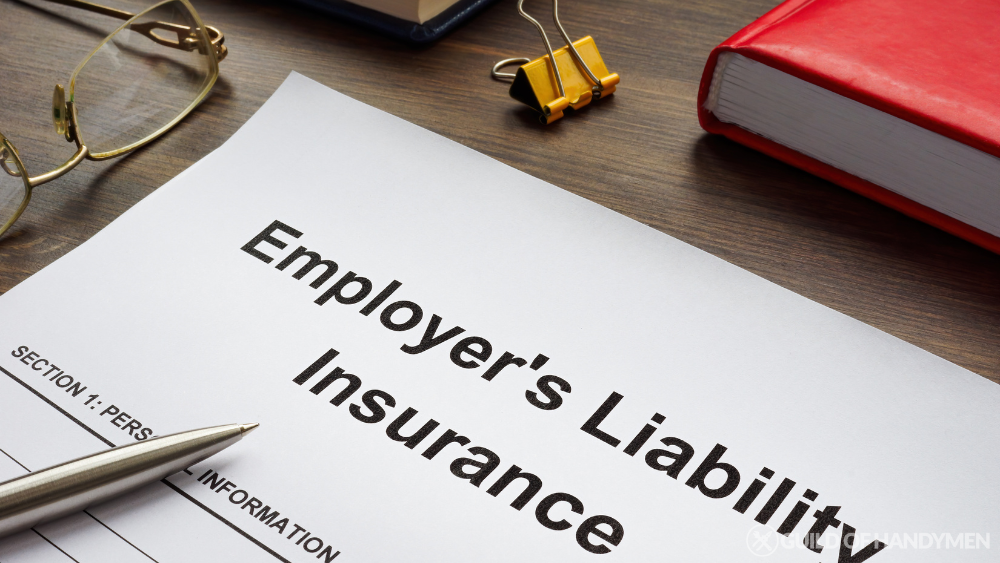Hiring a handyman can be a smart move for tackling repairs and maintenance around your home. But before any work begins, it’s crucial to confirm that your handyman is fully insured. This protects you in case of accidents, damage, or unexpected liabilities. Here’s a handy guide on how to check and understand a handyman’s insurance coverage.
This blog is part of our series on how to hire a reliable handyman – sharing everything you need to know to get the best handyman for your needs.
Why Insurance Matters
Accidents happen, even to the most skilled professionals. A dropped tool, water damage from a botched plumbing job, or even injury on your property could leave you facing hefty expenses. Insurance provides peace of mind, covering costs that might arise if things go wrong. Without insurance, you could be left personally responsible, which can turn a simple home improvement job into a financial nightmare.
Key Types of Insurance to Check

When verifying insurance, it’s essential to know what to look for. Generally, there are two main types of coverage that a handyman should have:
1. Public Liability Insurance
This insurance covers damage to your property or injury to third parties that might occur while the handyman is working. For instance, if a tool falls and damages your expensive countertop, public liability insurance ensures the repair costs are covered.
2. Employers’ Liability Insurance (If Applicable)
If the handyman has a team or brings assistants, they’re legally required to have employers’ liability insurance. This coverage protects against claims if a worker is injured on the job. If they’re a sole trader working alone, this won’t be necessary, but it’s worth asking if you see more people on-site.
Steps to Verify a Handyman’s Insurance
Confirming a handyman’s insurance isn’t difficult, but it’s an essential step. Here’s how to go about it:
1. Ask for Proof of Insurance
The simplest way to verify insurance is to ask the handyman to show you their insurance certificate. Any reputable professional should have no trouble providing this. If they’re hesitant or make excuses, consider it a red flag.
2. Check the Insurance Details
Once you have the certificate, take a few moments to look at the following key points:
- Insurance Company: Note who the insurer is and check if it’s a well-known, legitimate company.
- Policy Number: Every certificate will have a policy number. It’s useful to have this for reference if any disputes arise.
- Coverage Dates: Ensure the insurance is currently valid. Some handymen might present expired certificates, so always double-check the dates.
3. Verify Coverage with the Insurance Provider
For extra peace of mind, you can contact the insurance company directly to confirm the handyman’s coverage is still active. Use the details from the insurance certificate and ask the provider for verification. This step might seem a bit over-the-top, but it’s worth it for significant projects where the stakes are high.
Common Pitfalls to Avoid

Many homeowners skip the insurance check, often assuming the risk is low or that small jobs don’t need it. However, even minor repairs can result in costly problems. Here are some pitfalls to avoid:
- Trusting Without Proof: Never just take someone’s word for it. Insurance checks should always be backed by documentation.
- Overlooking Specific Coverage: For bigger projects, ensure the handyman’s insurance policy covers the specific type of work being done. For example, some policies may not cover electrical work or plumbing.
- Rushing the Process: It might feel awkward to ask for insurance details, but any professional will understand your caution. Don’t feel pressured to skip this step.
Questions to Ask Your Handyman
If you’re unsure about the insurance process, don’t hesitate to ask your handyman a few straightforward questions:
- Can I see your insurance certificate?
- What does your insurance cover?
- Is there any type of work your insurance doesn’t cover?
- Is your team covered by employers’ liability insurance (if they have one)?
These questions make it clear you value security and professionalism. A reliable handyman will happily walk you through their coverage.
Key Takeaways
- Always ask for and review a handyman’s insurance certificate to protect yourself from unexpected costs.
- Check coverage details carefully, paying attention to the insurance company, policy number, and valid dates.
- Verify with the insurance provider if you’re managing a large project or have concerns.
- Don’t overlook insurance for small jobs, as even minor work can carry risks.
- Ask direct questions about their coverage to ensure you’re well informed and confident.
Taking a few extra minutes to verify insurance can save you a world of trouble and expense later. After all, peace of mind is priceless when it comes to your home and safety.

